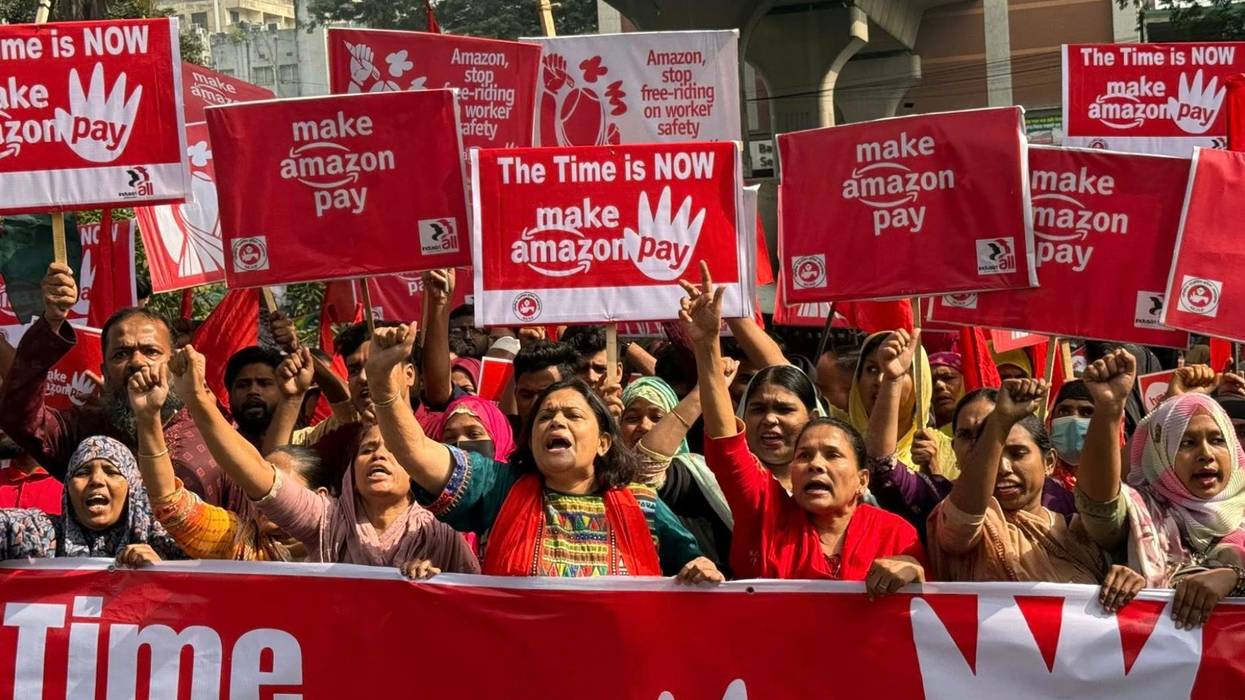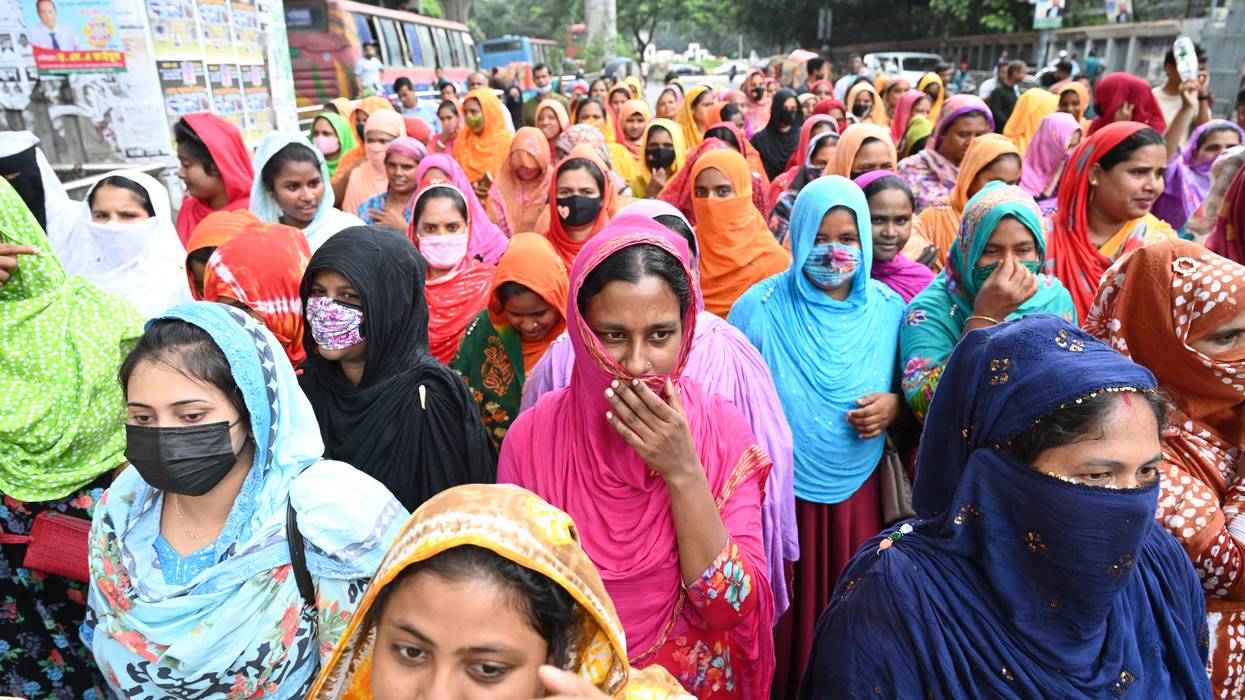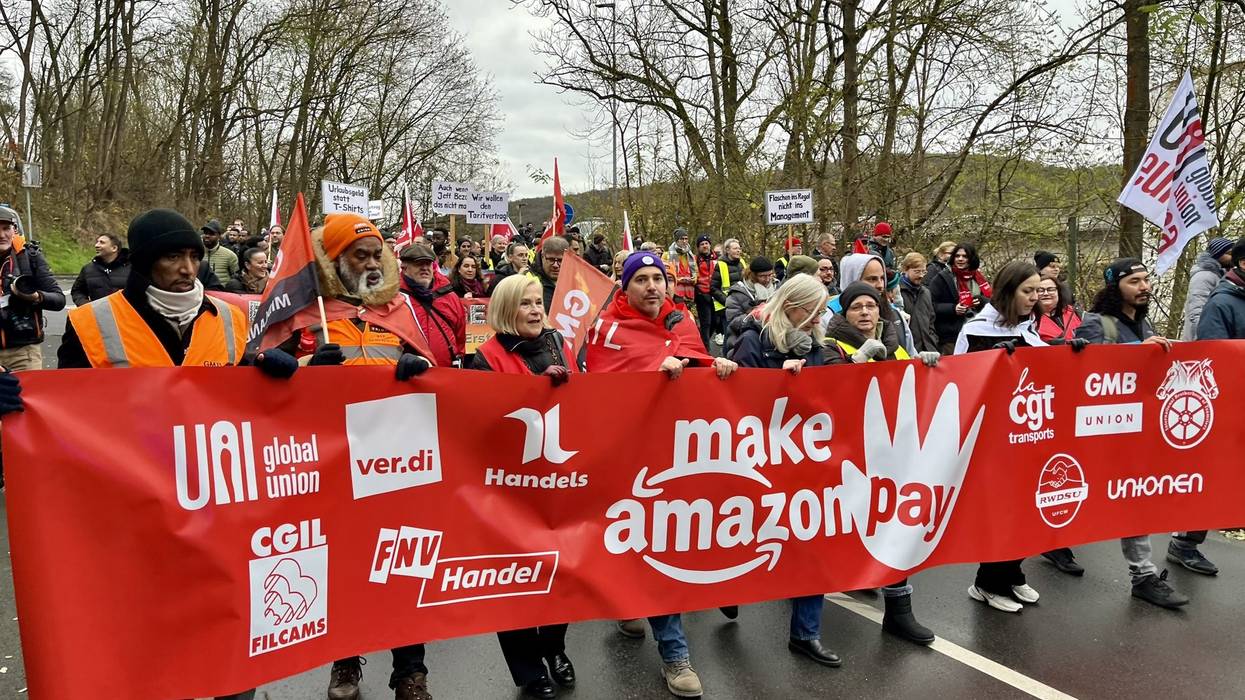Global Black Friday Strikes Against Amazon Target 'Techno-Authoritarian' Assault on Workers
"We are joining Make Amazon Pay to demand the most basic rights: safety, dignity, and the chance to go home alive," said one Amazon worker from India.
Amazon workers and their allies worldwide took to the streets on Black Friday, the busiest shopping day of the year, to protest the e-commerce behemoth's exploitation of workers, relentless union-busting, contributions to the worsening climate emergency, and plans to replace employees en masse with robots.
“Amazon, Jeff Bezos, and their political allies are betting on a techno-authoritarian future, but this Make Amazon Pay Day, workers everywhere are saying: enough,” said Christy Hoffman, general secretary of UNI Global Union. “For years, Amazon has squashed workers’ right to democracy on the job through a union and the backing of authoritarian political figures. Its model is deepening inequality and undermining the fundamental rights of workers to organize, bargain collectively, and demand safe, fair workplaces.”
From Germany to Bangladesh, thousands of workers walked off the job on Friday and marched against Amazon's labor practices to push for better wages, working conditions, and union protections. Last month, Amazon reported over $21 billion in profits for the third quarter of 2025—a 38% increase compared to the same time last year.
“During the heatwaves, the warehouse feels like a furnace—people faint, but the targets never stop,” said Neha Singh, an Amazon worker in Manesar, India, referring to the company's productivity quotas. "Even if we fainted, we couldn’t take a day off and go home. If we took that day off, our pay would be cut, and if we took three days off, they would fire us. Amazon treats us as expendable."
"We are joining Make Amazon Pay," said Singh, "to demand the most basic rights: safety, dignity, and the chance to go home alive.”
HAPPENING NOW 🌎 Amazon workers and their allies in 38 countries around the world are striking and protesting to #MakeAmazonPay. pic.twitter.com/srMRsymCh7
— Progressive International (@ProgIntl) November 28, 2025
Make Amazon Pay is an alliance of labor unions and advocacy groups organizing to stop Amazon from "squeezing workers, communities and the planet."
The 2025 strikes and protests, which organizers described as the largest mobilization against Amazon to date, mark the sixth consecutive year of global actions organized by the coalition.
The strike in Germany was characterized as the largest in Amazon's history, with around 3,000 workers expected to join picket lines across the country. The union representing Amazon workers in the United States voiced solidarity with striking German workers in a social media post on Friday, crediting them with "inspiring the global Amazon worker movement for over a decade."
Amazon Teamsters stand in solidarity with our German Amazon colleagues today as you engage in courageous strike action. To the long-time strikers - you’ve been inspiring the global Amazon worker movement for over a decade. To those who are joining the growing movement for the… pic.twitter.com/42ul1bbFb5
— Amazon Teamsters (@amazonteamsters) November 28, 2025
"Across the world, Amazon workers are walking off the job, marching through their cities, and standing shoulder-to-shoulder with communities to demand what every worker deserves: fair wages, safe conditions, the right to organize—and a future not dictated by algorithms and billionaires," Progressive International, a member of the alliance, said Friday.
"But the target is not only a company. It is the emerging system that Amazon now anchors: a techno-authoritarian order that fuses the power of Big Tech with the prerogatives of the far right—from Trump’s ICE raids to Israel’s genocide in Gaza," the group added. "This week's actions point toward another horizon. One in which supply chains become sites of struggle, not submission; where warehouse workers link arms with tech workers, garment workers, Indigenous communities, and migrants; where a global labor movement is capable of confronting a global system of power."


